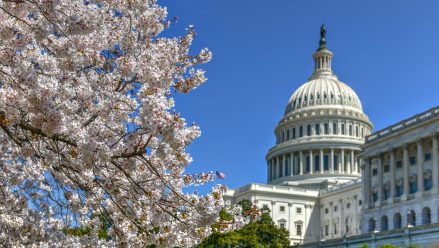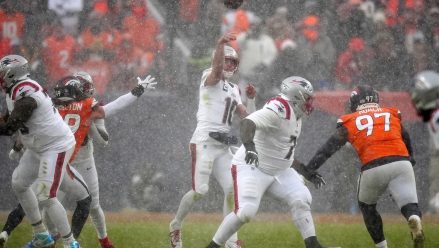The state of New Jersey on Tuesday asked the U.S. Court of Appeals for the Third Circuit to reverse a ruling that has allowed the Kalshi prediction market to continue offering sports events contracts in the state.
On April 29, U.S. District Judge Edward S. Kiel granted Kalshi’s request for a preliminary injunction against New Jersey’s cease-and-desist order, arguing that Kalshi was regulated by the federal Commodity Futures Exchange Commission (CFTC), not state gambling laws.
The state’s response, which prediction markets expert and Goodwin law firm partner Andrew Kim described to InGame as “incredibly underwhelming,” pushed two main points:
- The sports event contracts Kalshi offers are not “swaps” (events with economic consequence) and therefore are under the jurisdiction of state laws, not the CFTC.
- Congress has over its history allowed states to regulate gambling within their borders despite the CFTC’s power to regulate swaps and event contracts.
“New Jersey’s position is Congress did not mean to sweep out decades of not only state gaming laws, but federal gaming laws, and drive out state gaming regulators, just so that these swaps could be regulated by the CFTC,” Kim observed. “New Jersey’s saying this is not what Congress intended when it modified the Commodity Exchange Act of 2010 under Dodd-Frank to allow for these event contracts and to provide for self-certification of these event contracts.”
Swaps definition central to New Jersey case
The CFTC relented after attempting to prevent Kalshi from posting markets on the 2024 U.S. presidential election, and the site used the self-certification process to begin offering binary yes/no markets on sports outcomes in January. These markets have expanded into the realm of more traditional sportsbook fare to include NFL win-total markets.
Kim wonders if New Jersey was wise to attack the swaps argument so aggressively. While swaps are ubiquitous in areas of high financial impact such as agricultural markets, Kalshi — while denying that it’s a gambling platform — has applied them to games that often draw miniscule interest from its customers. But some of its others sports event contracts could be argued to be of high economic consequence.
With its board in flux and chair nominee Brian Quintenz early in the confirmation process, the CFTC has not made a ruling on Kalshi’s assertions. Quintenz was vague when questioned about sports event contracts during in his confirmation hearing on Tuesday.
“If you’re winning the Super Bowl, that’s going to have direct financial consequences just based on payouts, bonuses for players,” Kim posited. “This is the sort of thing that carries economic consequences. The bigger the event, the bigger the consequences. So that’s the tricky part of New Jersey’s argument.
“So that goes to the question whether these contracts are swaps at all. And by doing that, New Jersey is fighting in the CFTC sandbox. The CFTC is not in that sandbox, but it’s fighting in the CFTC sandbox and saying this doesn’t even fall under the Commodity Exchange Act, these contracts don’t fall under the act because they’re not tied to or connected to an economic consequence, an event with economic consequence. And that’s a hard line to take.”
New Jersey also spent much of the 66-page document asserting the primacy of state gambling regulations, noting that Kalshi offering markets on in-state college sports violated its laws.
In the filing, New Jersey asserted that “the constitutional default is that companies like Kalshi will necessarily have to navigate interlocking state and federal laws. Nothing in the Commodity Exchange Act or New Jersey’s Sports Wagering Act compels a different result.”
Kim said the filing “came off to me as in some places arrogant, a little too boastful, and like covering up a lot of sins and a lot of weaknesses in their arguments.”
Kalshi, he predicted, would capitalize on those weaknesses in its response, which is due July 10.
Key among them, Kim said, is how New Jersey asserted Congress’ intentions regarding its possible preemption of state gambling laws and its definition of swaps.
“It kind of just reaches conclusions that if the CFTC gets to regulate event contracts and swaps in this manner, then what New Jersey says is this overrides federal and state gaming and gambling laws in a way that Congress didn’t intend to do,” Kim said. “But my problem with their brief is that they just kind of say it and they don’t really explain why.
“Because if I were to say event contracts that are traded under the CFTC’s rules on a designated contract market, that’s not gambling, because the way these contracts function are not the same as bets or wagers, as a matter of federal law, if that’s what I hold, then New Jersey’s entire argument kind of falls apart.”





